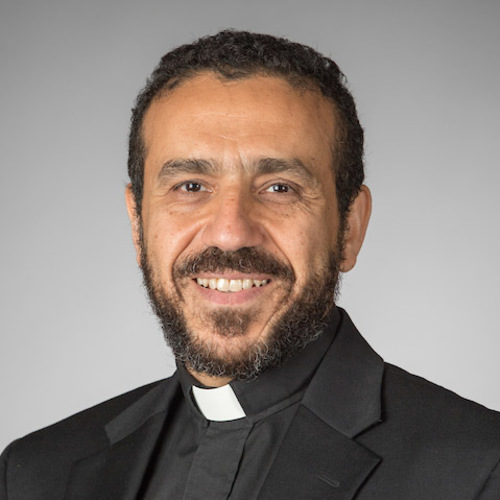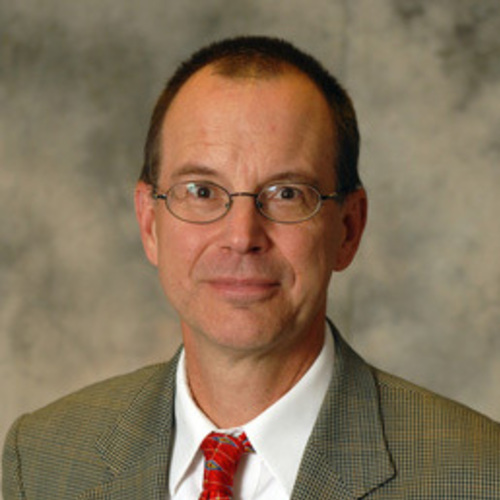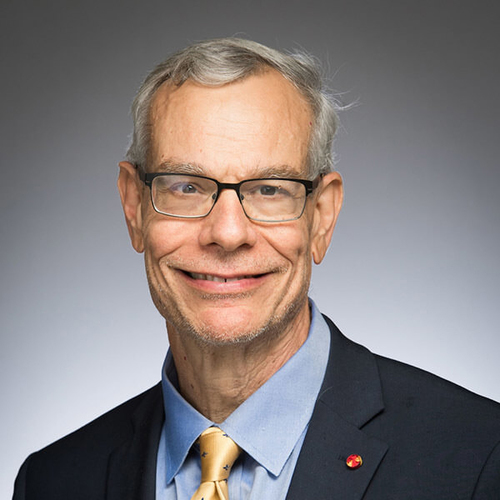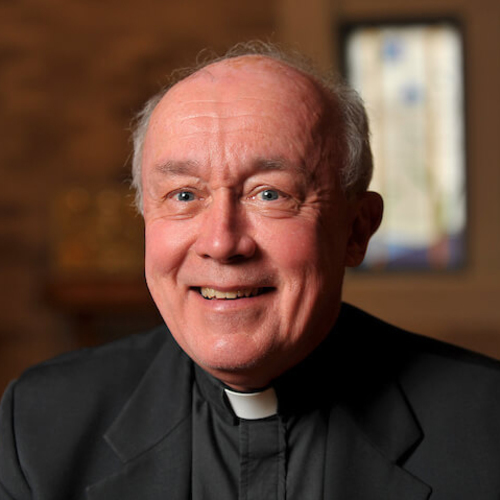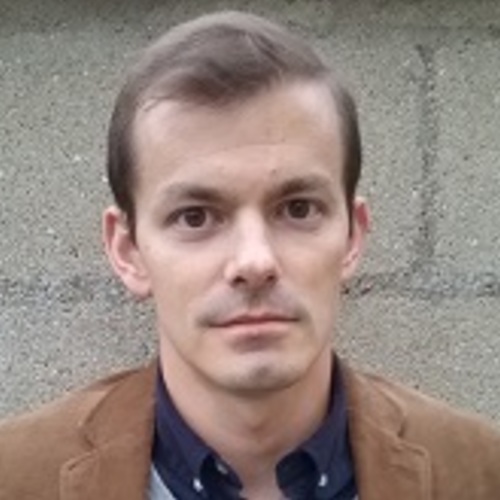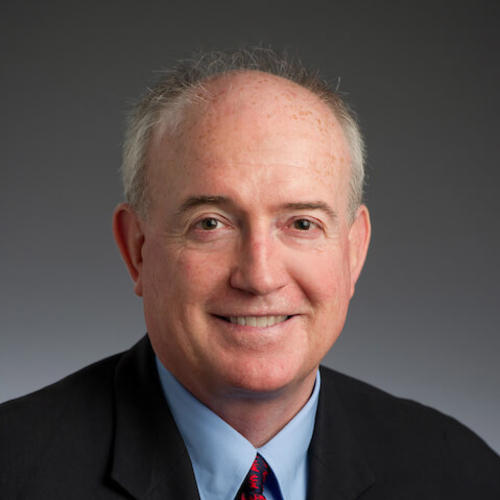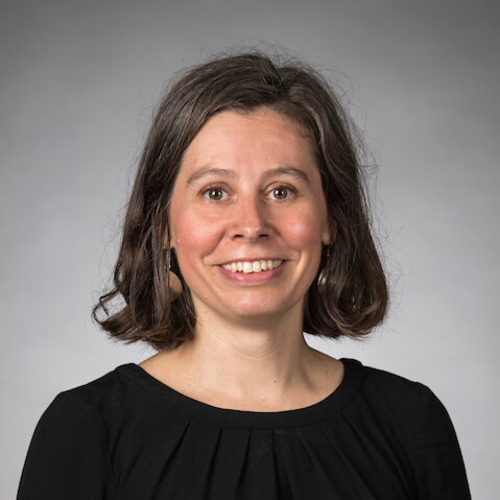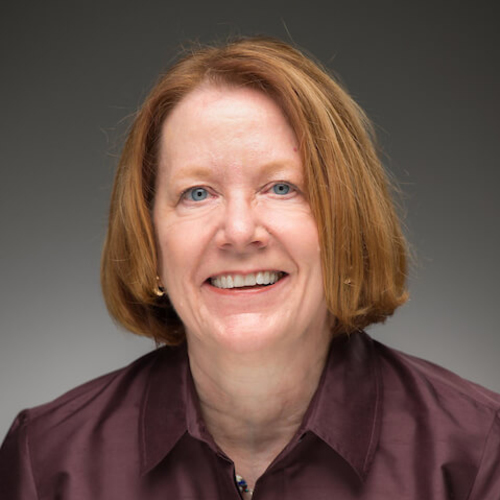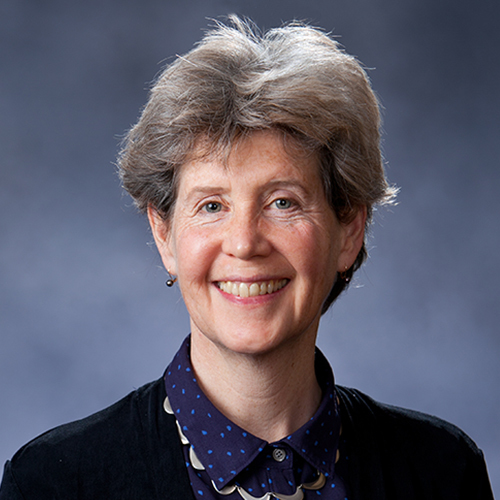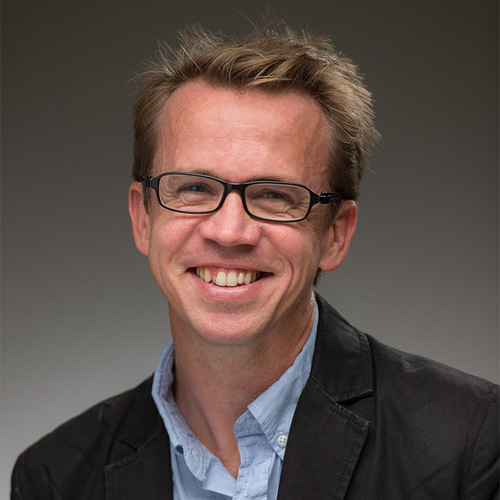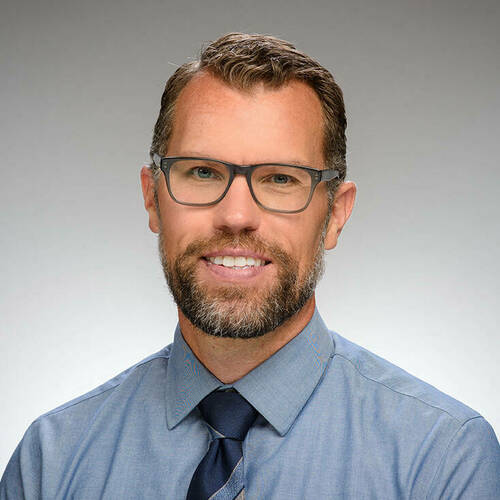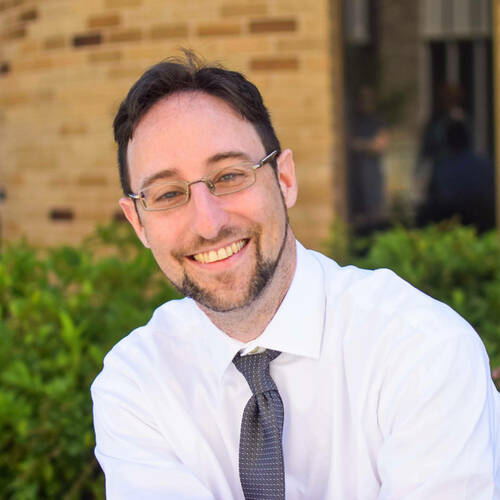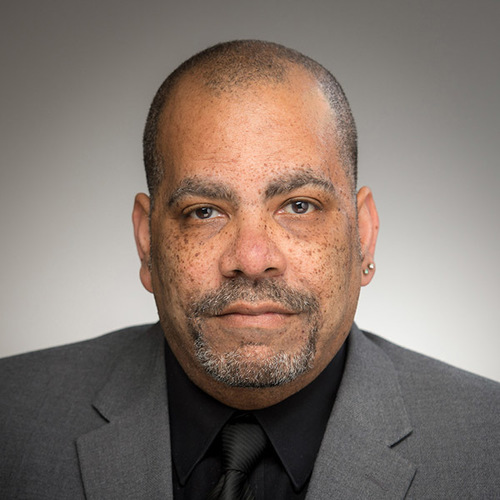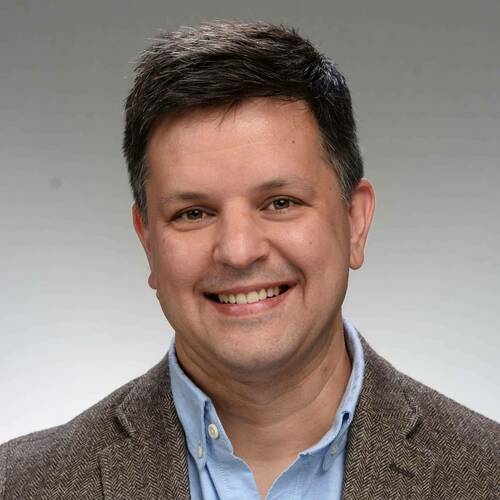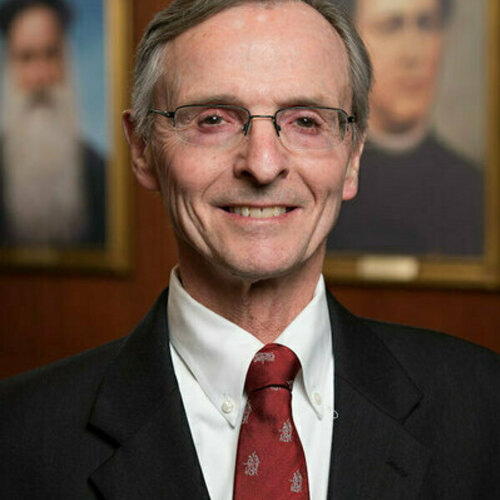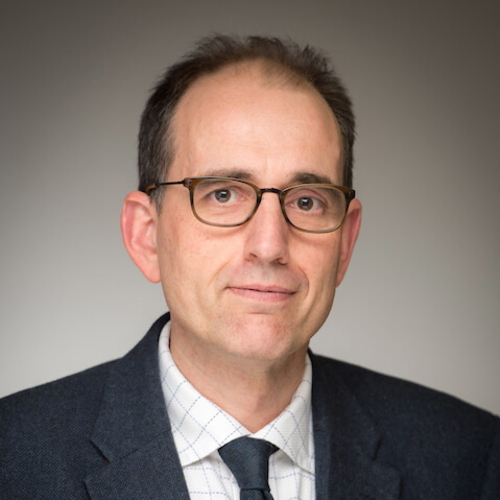Christianity & Judaism in Antiquity
The program in Christianity and Judaism in Antiquity (CJA) includes four disciplines:
- the Hebrew scriptures
- Judaism, especially Second Temple and early Rabbinic Judaism
- the New Testament and Greco-Roman world
- other Christian sources to the early medieval period
These are frequently studied in isolation from one another. In CJA, they are studied together for their mutually illuminating interrelationships. At the same time, the integrity of each discipline is respected. Judaism is explored in its own right as well as in its relationship to Christianity. Christianity is explored by itself as well as in its dependence upon Judaism and its conscious, emerging distinction from Judaism.
“By reading the Bible along with some of its earliest interpreters in antiquity, it's actually strange, unsettling, unsystematic. It's full of surprises.”
— Nathan Eubank, Associate Professor of Theology
In the CJA program, the scriptures are seen as expressions of faith—products of the fertile literary, historical, and theological continuum which stretches from before the Babylonian Exile to the beginning of the Middle Ages. This period witnessed the gradual written composition of the Hebrew scriptures and the many facets of Judaism: Hellenistic, apocalyptic, messianic, and rabbinic. It witnessed the gradual written formulation of the New Testament, as well as the ecclesiastical and intellectual history of Christianity in dialogue with Judaism and the Greco-Roman world.
Surrounding the writings that eventually came to form the Jewish and Christian canons was a wealth of other religious and cultural literature (which this program takes seriously and which is valuable for its own sake). The literature greatly illumines the scriptural writings by portraying the world which gave birth to them and helps us understand the subsequent interpretations and elaborations of them given by the Jewish and Christian communities in the Mishna, Talmud, and Patristic literature.
Within this broad spectrum students major in either Hebrew Bible and Judaism or New Testament and early church, but a general knowledge of the whole area is to be included in their course work. Students are also immersed in the methods appropriate to study of the Near East and Greco-Roman world, and the historical and linguistic skills required to engage in this study are provided. Since the program is done in the broader context of a department of theology, course work outside the area is also required.
For additional information about the Christianity and Judaism in Antiquity (CJA) area of study please click this link: cja_additional_requirements.pdf
Faculty
-

Khaled Anatolios
Department Chair
John A. O'Brien Professor of TheologyHistory of Christianity, Christianity and Judaism in Antiquity |Early Christian Doctrine, Theological Method, and Biblical Exegesis |Khaled Anatolios is interested in all aspects of the theology of the early Church, with special emphases on the Trinitarian, Christological, and soteriological doctrines of the Greek fathers and Augustine; early Christian biblical exegesis; and the development of theological methodology in Patristic and medieval theology. He has published on a variety of early Christian theologians including Irenaeus, Origen, Athanasius, Augustine, and Gregory of Nyssa. A particular focus of his work is the engagement between early Christian theological reflection and contemporary theological concerns.
-

Gary A. Anderson
Hesburgh Professor of Catholic Thought
Christianity and Judaism in Antiquity | The Tabernacle narrative | Gary Anderson is interested in all dimensions of Biblical studies. His specialization is in the Hebrew Bible/Old Testament, but because of his interest in the history of interpretation, he also works in Second Temple Judaism and early Christian sources.
-

John C. Cavadini
Professor
History of Christianity, Christianity and Judaism in Antiquity | He teaches, studies, and publishes in the area of patristic theology and in its early medieval reception. | John C. Cavadini is a Professor of Theology at the University of Notre Dame, having served as Chair from 1997-2010. Since 2000 he has served as the Director of the McGrath Institute for Church Life at Notre Dame. He received a B.A. in 1975 from Wesleyan University; an M.A. in 1979 from Marquette University; M.A., 1981, M.Phil., 1983 and his Ph.D. in 1988 from Yale University. A member of the Notre Dame faculty since 1990, Cavadini teaches, studies and publishes in patristic and early medieval theology, the theology of Augustine, and the history of biblical and patristic exegesis. He has served a five-year term on the International Theological Commission (appointed by Pope Benedict XVI) and in 2018 received the Monika K. Hellwig Award from the Association of Catholic Colleges and Universities for Outstanding Contributions to Catholic Intellectual Life. As Director of the McGrath Institute for Church Life, he inaugurated the Echo program in catechetical leadership, the Notre Dame Vision program for high school students and is responsible for the continued growth and outreach of the McGrath Institute, which partners with Catholic dioceses, parishes and schools to address pastoral challenges with theological depth and rigor.
-

Brian Daley, SJ
Catherine F. Huisking Professor of Theology, Emeritus
History of Christianity, Christianity and Judaism in Antiquity | Patristic Christology, Eschatology, Theology of Mary, Ecumenical Theology | Born in Orange, NJ, in 1940, Fr. Daley did his undergraduate work at Fordham University and a subsequent M.A, (classics and philosophy) at Oxford as a Rhodes Scholar. He then entered the Society of Jesus, taught for a year at Fordham, and studied theology for ordination in Frankfurt, Germany. He returned to Oxford in 1972 for doctoral studies, focused on the Patristic Christological tradition, and completed a critical edition of the works of the sixth-century theologian Leontius of Byzantium in 1978. He then was a faculty member of the Weston Jesuit School of Theology, in Cambridge, MA, until 1996, when he moved to Notre Dame's Department of Theology as the Catherine Huisking Professor. He considers himself a historical theologian, studying the thought and practices of the first seven or eight centuries of Christianity as expressions of the developing common faith of the Church, especially as it is focused on our understanding of the person of Christ, the Trinity, and the hope for eternal life. His most recent book is: God Visible: Patristic Christology Reconsidered (Oxford University Press, 2018).
-

Nathan Eubank
Rev. John A. O'Brien Associate Professor of Theology
Christianity and Judaism in Antiquity | Synoptic Gospels, the Letters of Paul, Reception of New Testament Texts in Antiquity | Nathan Eubank's research centers on the Synoptic Gospels and Paul, as well as ancient biblical interpretation. He is currently working on merit in early Christianity and its role in the construction of Christian origins.
-

John Fitzgerald
Professor
Christianity and Judaism in Antiquity | Pastoral Epistles | After completing his MDiv. degree at Yale Divinity School, John T. Fitzgerald spent a year in Germany on a Rotary Fellowship, studying Hellenistic Judaism at the University of Tübingen. He returned to Yale University, where he received his Ph.D. in New Testament in 1984. He spent more than three decades (1981-2012) as a faculty member in the Department of Religious Studies at the University of Miami in Coral Gables, Florida, where he also held various administrative positions and chaired the Department of Religious Studies. Since 2012 he has been Professor of New Testament and Early Christianity in the Department of Theology at the University of Notre Dame. In addition, Fitzgerald has been a visiting associate professor at Brown University (1992) and the Yale Divinity School (1997-1998, 2004), and since 2008 he has served as Professor Extraordinary for the Faculty of Theology at North-West University in South Africa. The author of more than 85 articles and more than 170 book notes/reviews, he is also the author, editor, or co-editor of eleven books. His current major projects are a commentary on the Pastoral Epistles for the Hermeneia series and a revised, updated edition of Everett Ferguson’s Backgrounds of Early Christianity.
-

Jennie Grillo
Tisch Family Associate Professor
Christianity and Judaism in Antiquity | The interpretation of the Old Testament in conversation with Christian theology | Jennie Grillo teaches courses in Hebrew Bible/Old Testament. Before coming to Notre Dame she taught at Duke Divinity School, UMass Amherst, Amherst College, and Harvard. She is the author of The Story of Israel in the Book of Qohelet: Ecclesiastes as Cultural Memory (Oxford University Press 2012), which won a Manfred Lautenschlaeger Award. Her current book project is a study of the Additions to Daniel in the history of interpretation, and her interests include wisdom literature, ideas of idolatry in the Old Testament, the history of the Bible as a book, and reading the Bible through its reception in art, literature, and liturgy. Her research has been supported by fellowships from the ACLS, the Louisville Institute, the National Humanities Center, and a Mellon Fellowship in Critical Bibliography from Rare Book School at the University of Virginia. She and her husband Luca are parents to two young girls.
-

Robin Jensen
Director of Master of Theological Studies
Patrick O'Brien Professor of TheologyLiturgical Studies, Christianity and Judaism in Antiquity |Early Christian art and archaeology |Robin Jensen’s research and publication focuses on the relationship between early Christian art and literature and examines the ways that visual images and architectural spaces should be regarded as modes of theological expression. Her published essays and books contend that, in addition to interpreting sacred texts, visual images enhance liturgical settings, reflect the nature and content of devotional piety, and explicate ritual practices. She teaches courses on the character of late antique Christian and Jewish art, the history and evolution of Christian architecture, the iconography of the cross and crucifix, depictions of Christ and the Virgin Mary, and the place and controversies over images and idols in ancient and early medieval Christianity. Additionally, she has researched the practices, distinctive character, and material evidence of Christianity in ancient Roman North Africa. Her current project, tentatively titled "From Idols to Icons" (under contract with the University of California Press) examines the emergence of a Christian material piety in the fourth and fifth centuries. This work discusses the perceived danger of visual representations of divine beings, early controversies over the miraculous power of saints' shrines and relics, the sacralization of structures and geographical places, and the belief that images may facilitate the presence of holy persons in their absence.
-

Blake Leyerle
Professor
Christianity and Judaism in Antiquity |John Chrysostom and domestic devotions; early Christian pilgrimage; animals |Blake Leyerle's scholarly specialization lies in the social and cultural history of early Christianity. She has published on a wide range of topics (such as almsgiving, children, table manners, domestic devotions, travel and communication, pilgrimage, the theater, asceticism, urban life, amulets, sewers, animals, and the emotions), but has a particular interest in John Chrysostom. All of her work is marked by a commitment to incorporating material reality as well as the insights of critical theory. She is a member of the Society of Biblical Literature and the North American Patristics Society, and has served in multiple capacities on their steering and planning committees. Since 1990, she has taught at all levels at Notre Dame and been recognized for her excellence in teaching. A founding member of the interdisciplinary Master’s Program in Early Christian Studies at Notre Dame, she was its longest-serving director. Her most recent book, The Narrative Shape of Emotion in the Preaching of John Chrysostom, was published by the University of California Press in 2020. Another monograph, Christians at Home: John Chrysostom on Domestic Rituals, is forthcoming from Penn State Press (June 2024). Her next book project focuses on early Christian pilgrimage to the Holy Land.
-

David Lincicum
Associate Professor
Christianity and Judaism in Antiquity | The Epistle of Barnabas, the Wisdom of Solomon, the History of Biblical Interpretation | Doing my best to honor a long tradition, I work at the intersection of early Jewish, early Christian and New Testament studies. My research has especially focused on investigating early Christian and Jewish biblical interpretation, Pauline literature, and the history of interpretation. I hope that my monograph on Paul and the Early Jewish Encounter with Deuteronomy makes some contribution not only to an understanding of Paul, but also to the apprehension of Second Temple Judaism and the relation between the Old and New Testaments. I'm currently at work on an edition, translation, introduction and commentary for the curious text known as the Epistle of Barnabas. All of this research reflects my broad interest in New Testament and Early Christian studies, but also my attempt to grapple seriously, in cross-disciplinary investigations, with Second Temple Judaism, the formation of self-consciously Christian appropriations of the Old Testament, and the history of New Testament study, including the theological reception of the New Testament as Scripture. More distant glimmers on the horizon include work on the reception of the Wisdom of Solomon.
-

Daniel Machiela
Director of Doctoral Program
Associate ProfessorChristianity and Judaism in Antiquity |Ancient Judaism; early biblical interpretation; the Dead Sea Scrolls |Daniel Machiela teaches in the area of Hebrew Bible/Old Testament, with core research interests in early biblical interpretation and ancient Jewish literature. His published work has focused mainly on the Dead Sea Scrolls, especially those written in Aramaic. Additional interests include Aramaic and Hebrew language, the Septuagint, and the New Testament within the wider scope of ancient Judaism. He is currently working on an introduction to the Aramaic Dead Sea Scrolls, with commentary projects on the Genesis Apocryphon and the book of Tobit on the more distant horizon. Before moving to Notre Dame in 2022, he taught for fourteen years at McMaster University.
-

Tzvi Novick
Abrams Jewish Thought and Culture Professor of Theology
Christianity and Judaism in Antiquity | Rabbinic law and liturgy | Professor Novick completed a B.A. from Yale University with a degree in philosophy. After a very brief but instructive legal career, and an MA in Hebrew Bible from Yeshiva University, he enrolled in the PhD program in Religious Studies at Yale, from which he graduated in 2008 with a focus on early rabbinic Judaism (ca. 2nd to 6th c.). Professor Novick has taught at Notre Dame ever since, on subjects ranging from the Bible to modern Judaism and post-Holocaust literature and theology.
-

(The Rev.) Hugh R. Page, Jr.
Professor
Christianity and Judaism in Antiquity |Page’s scholarly interests include early Hebrew poetry, Africana biblical interpretation, esoterism in Africa and the African Diaspora, poetry as a medium for theological expression, and the use of religious traditions and sacred texts in the construction of individual and corporate identity in the Africana world. |(The Rev. Canon) Hugh R. Page, Jr. is Professor of Theology and Africana Studies. He also serves as Vice President, Associate Provost, and Dean of the First Year of Studies. An Episcopal priest, Page holds a bachelor’s in history from Hampton University, two master’s degrees from The General Theological Seminary in New York, a doctorate in ministry from the Graduate Theological Foundation, and a master’s and doctorate in Near Eastern languages and civilizations from Harvard University. He joined the Notre Dame faculty in 1992 and, in 2001, received a Presidential Award for distinguished service to the University.
-

Anthony Pagliarini
Director of Undergraduate Studies
Assistant Teaching ProfessorChristianity and Judaism in Antiquity |Prophecy, Hermeneutics, Biblical Theology |Anthony Pagliarini grew up in northeastern Pennsylvania (Wilkes-Barre). After earning his BA in theology and philosophy at Notre Dame, he taught high school in a Catholic mission parish in Belize. He then moved to Rome to study theology at the Angelicum and work as a guide in the Vatican Necropolis (the "Scavi"). He spent the following three years in Austria completing masters work at the International Theological Institute. He then returned to Rome for further study at Pontifical Biblical Institute and the École Biblique. After completing his SSL, he returned to Notre Dame to begin doctoral work in Old Testament. He now teaches in the Department of Theology and is the Director of Undergraduate Studies. His course offerings include “Foundations of Theology,” “The Catholic Faith,” “Introduction to the New Testament,” “Psalms and Wisdom Literature,” “Prophets,” “Theology of Creation,” and “Intensive Intermediate Hebrew.” Anthony and his wife Katie live in South Bend with their four children.
-

James VanderKam
John A. O'Brien Professor of Hebrew Scriptures, Emeritus
Christianity and Judaism in Antiquity |Second temple literature and scholarship on it |James VanderKam received his Ph.D. from Harvard University in 1976. He began teaching at North Carolina State University in 1976 and remained there until 1991, at which time he accepted an invitation to the University of Notre Dame where he is the John A. O’Brien Professor of Hebrew Scriptures. VanderKam’s areas of interest are the history and literature of Early Judaism and the Hebrew Scriptures. His research in the last 30 years has focused on the Dead Sea Scrolls and related literature. As a member of the editorial committee preparing the scrolls for publication, he edited thirteen volumes in the series Discoveries in the Judaean Desert. He is one of the two editors in chief of the Encyclopedia of the Dead Sea Scrolls (2000). His The Dead Sea Scrolls Today (1994), has been translated into six languages and appeared in a second edition in 2010. His commentary on the Book of Jubilees (Hermeneia) was published in November 2018. Among his other books are From Revelation to Canon: Studies in the Hebrew Bible and Second Temple Literature (2000), An Introduction to Early Judaism (2001), The Meaning of the Dead Sea Scrolls (2002), From Joshua to Caiaphas: High Priests after the Exile (2004), 1 Enoch 2 (2012), and The Dead Sea Scrolls and the Bible (2012). He has published numerous essays in journals and books. For six years he was the editor of the Journal of Biblical Literature and is on the editorial boards of Dead Sea Discoveries and several series. VanderKam has delivered papers at many conferences and has offered lectures in a wide variety of places.
-

Abraham Winitzer
Jordan H. Kapson Associate Professor of Jewish Studies
Christianity and Judaism in Antiquity |Biblical Demythologization of Mesopotamian Myth: Conceptions of Myth In the Ancient World. Reception of Mesopotamian traditions in Judaism and Islam. The Spirit of Scholarship: Catholic Clergy at the Dawn of Ancient Near Eastern Studies, 1875-1965. Sumerian and Old Babylonian miscellaneous texts in the Yondorf Collection (with Walter Farber). | Winitzer teaches ancient Near East languages (primarily Akkadian, Aramaic, and Hebrew), but his interests deal more broadly with the intellectual and religious history of the ancient Near East and its reflection in the literature from this region. More particularly, it is the Akkadian literature from ancient Mesopotamia that forms the focus of his work, though a second major area involves Israel’s principal literary achievement, the Hebrew Bible, in its ancient Near Eastern context. His writings have centered on Akkadian divination, the subject of his 2017 book (Brill), along with contemporary Near Eastern historiography, the subject of his forthcoming volume on A. L. Oppenheim. He is presently turning to a project concerning and the reception of Mesopotamian mythic traditions in the Hebrew Bible.
